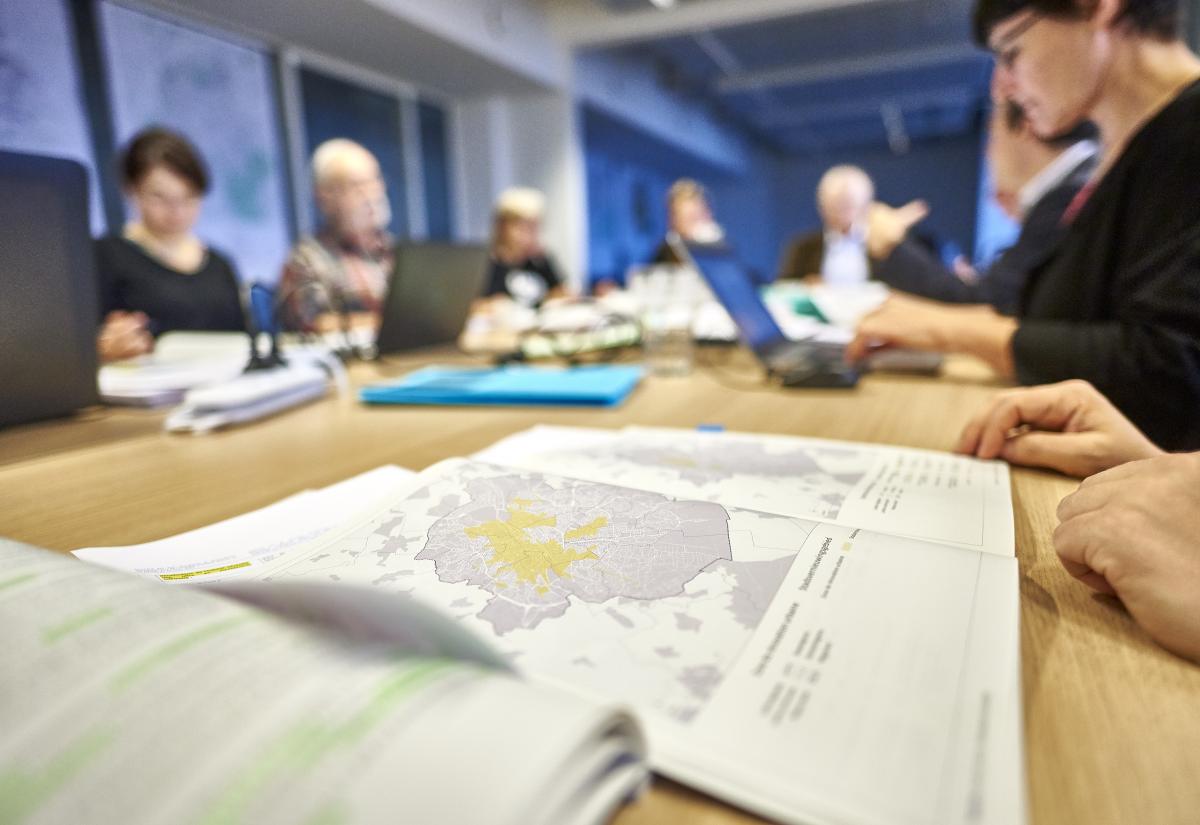- Home
- Urban projects
Urban projects
The territory of the Brussels-Capital Region is constantly developing. Learn more about our urban projects (French or Dutch)
- Urban issues
Urban issues
Housing, facilities, economy, land... perspective.brussels collects and analyses the data essential to the development strategy of the Region. Learn more about these urban issues (French or Dutch)
- Statistics and analyses
- Planning tools
- Who are we?
Our partners
Perspective collaborates with all actors involved in spatial planning as well as in the statistical and socio-economic analysis of the Brussels Region.
Description
Perspective systematically adopts a partnership approach, linking its missions to those of its partners and working in collaboration with all the players involved in the development of the region. These collaborations are structured in particular by the territorial platform and by the regional committee for territorial development.
Territorial plateform
The territorial platform is an informal body that brings together Perspective, Urban, the SAU and Citydev. This platform enables exchanges between the various institutions on their respective missions and provides a forum for strengthening their links. It also leads to concrete collaborative actions.
Regional Committee for Territorial Development
The Regional Committee for Territorial Development issues a non-binding reasoned opinion on regional planning projects that have an impact on the development of the Brussels-Capital Region and a significant impact on the performance of the missions of at least one of the members. It may make observations or suggestions to the Brussels Government regarding the implementation or adaptation of these plans.
Other partners
To carry out its missions efficiently, Perspective collaborates with all the actors of the Brussels Region: the regional institutions (such as the members of the CRDT, actiris.brussels, Brussels Economy and Employment, etc.), the Municipalities, the Communities, the Federal level (NBB, Federal Planning Bureau, IIS, etc.), the European Commission, the statistical institutions of the two other Regions (Iweps, VSA), the academics, members of the civil society and citizens' representatives.
For the successful implementation of its “European, international and inter-regional” strategy, perspective.brussels works with various institutional actors, networks and associations.
Institutional partners
Belgium
-
Brussels
-
Federal State
- In the Flemish Region
- FWB - Wallonia-Brussels Federation
- In the Walloon Region
Europe
- Lille
- European Union
- European Commission - Directorate-General Regional and Urban Policy
- Conseil de l’Union européenne – Groupes de travail informels
- Parlement européen – Urban intergroup
- ESPON - programme de recherche pour soutenir développement territorial en Europe
- EUROSTAT – Office statistique de l’Union européenne
International
- Commission statistique de l’ONU
- OCDE – Organisation de Coopération et de Développement Économiques
- ONU-Habitat- Agence des Nations-Unies pour les Habitats Humains
- Division statistique des Nations-Unies
- Région de Rabat-Salé-Kénitra
- Université Bio-Bio du Chili
Networks and associations
Belgique
- FUP/CUB – For Urban Passion / Chambre des Urbanistes de Belgique
- VRP - Vlaams Vereniging voor ruimte en Planning
Europe
- EUROCITIES – Réseau des Grandes villes européennes
- METREX – Réseau des aires et regions métropolitaines européennes
- EMA – Autorités Métropolitaines Européennes
International
- METROPOLIS – Réseau mondial des grandes villes et aires métropolitaines
- Plateforme Francophone des Agglomérations
